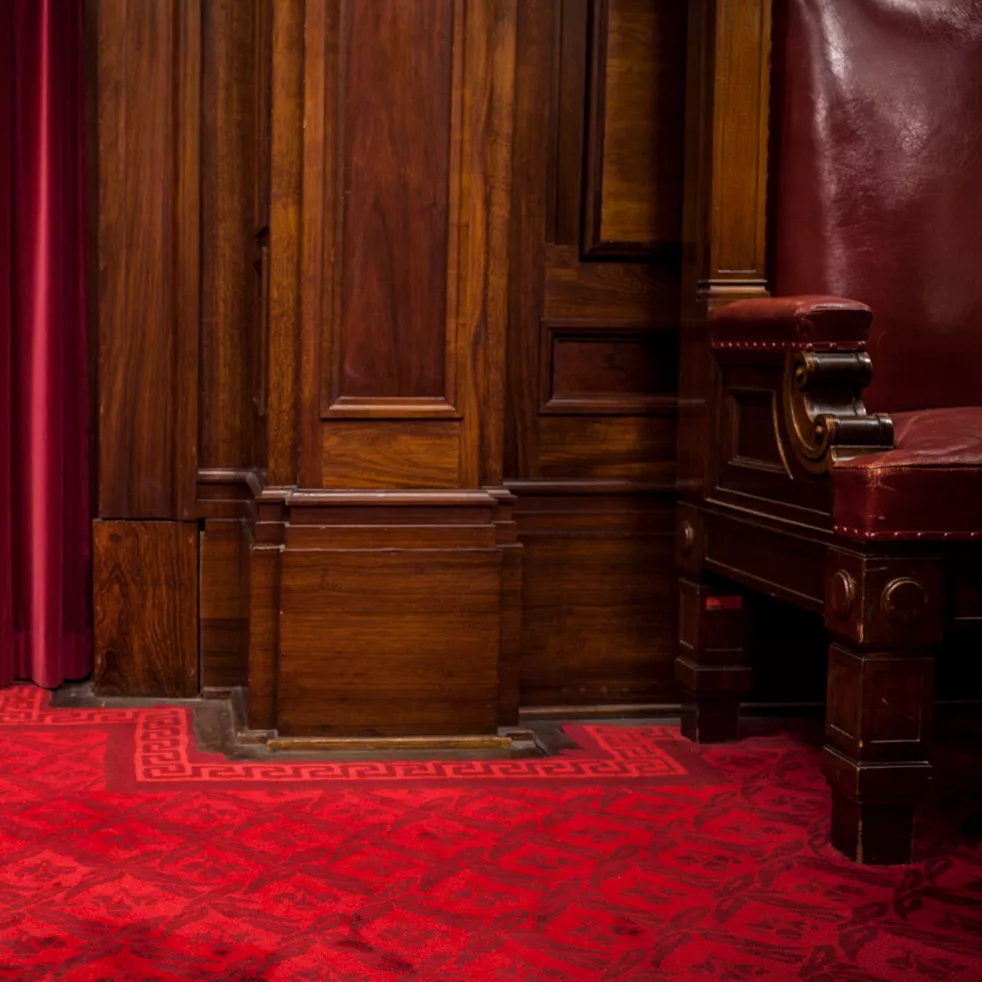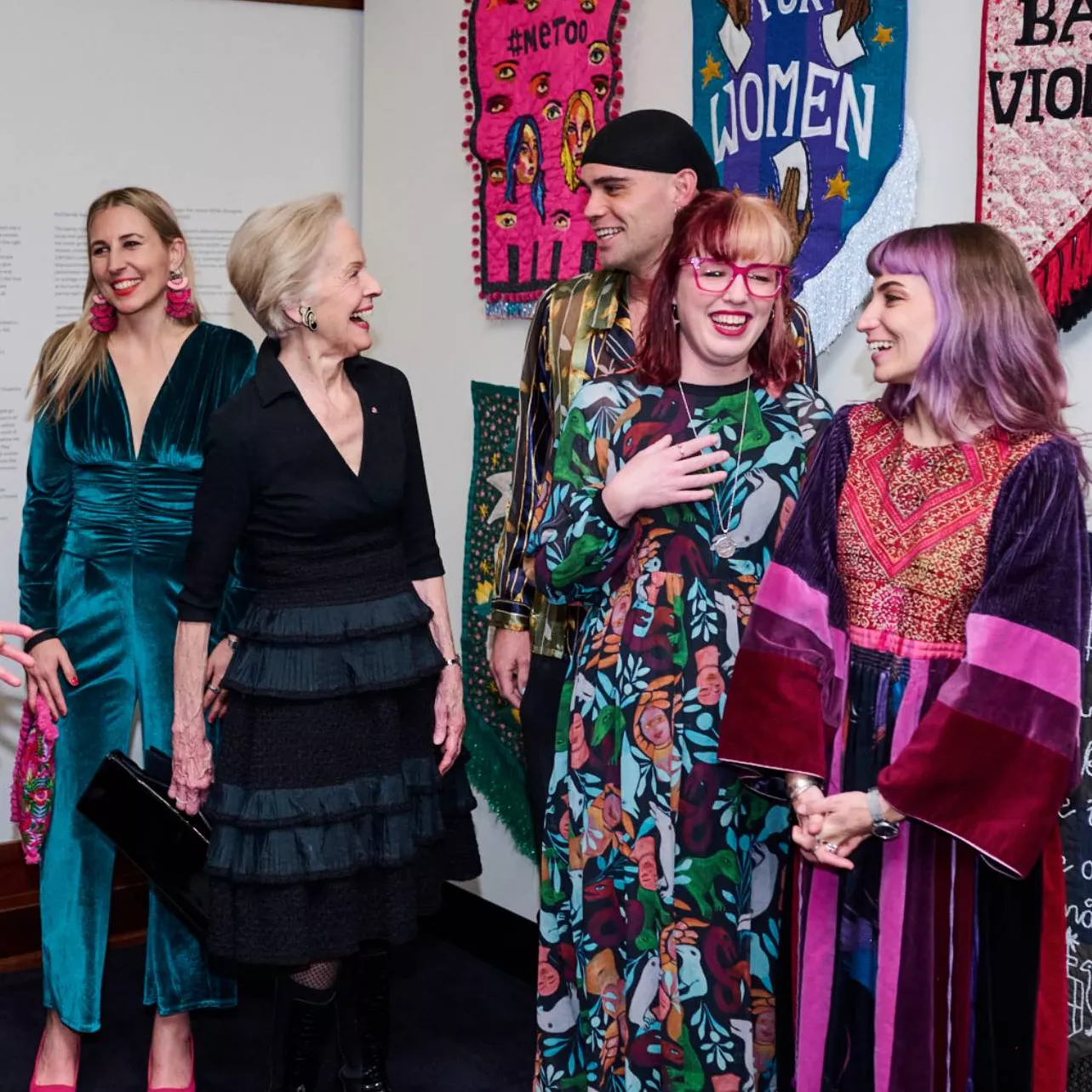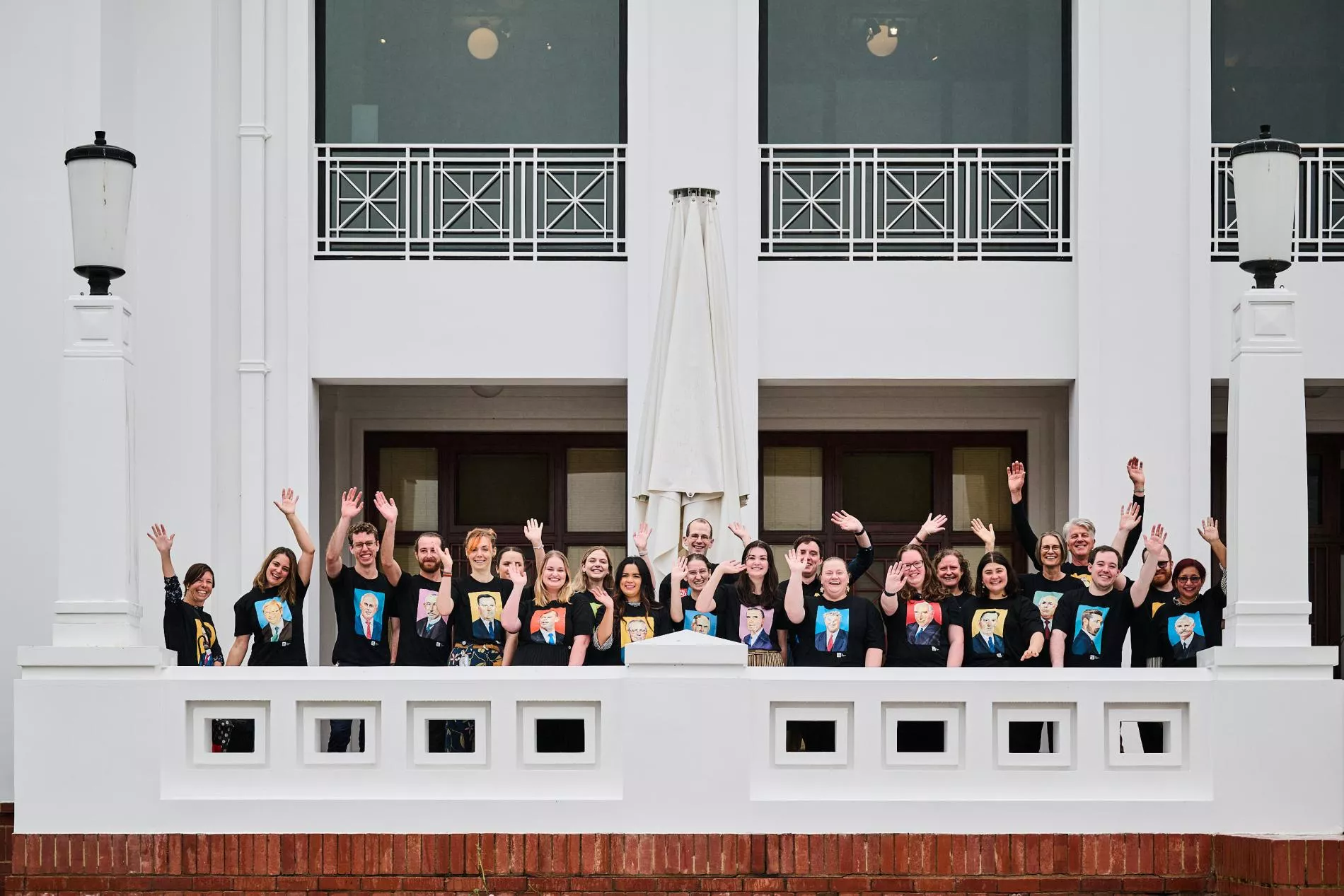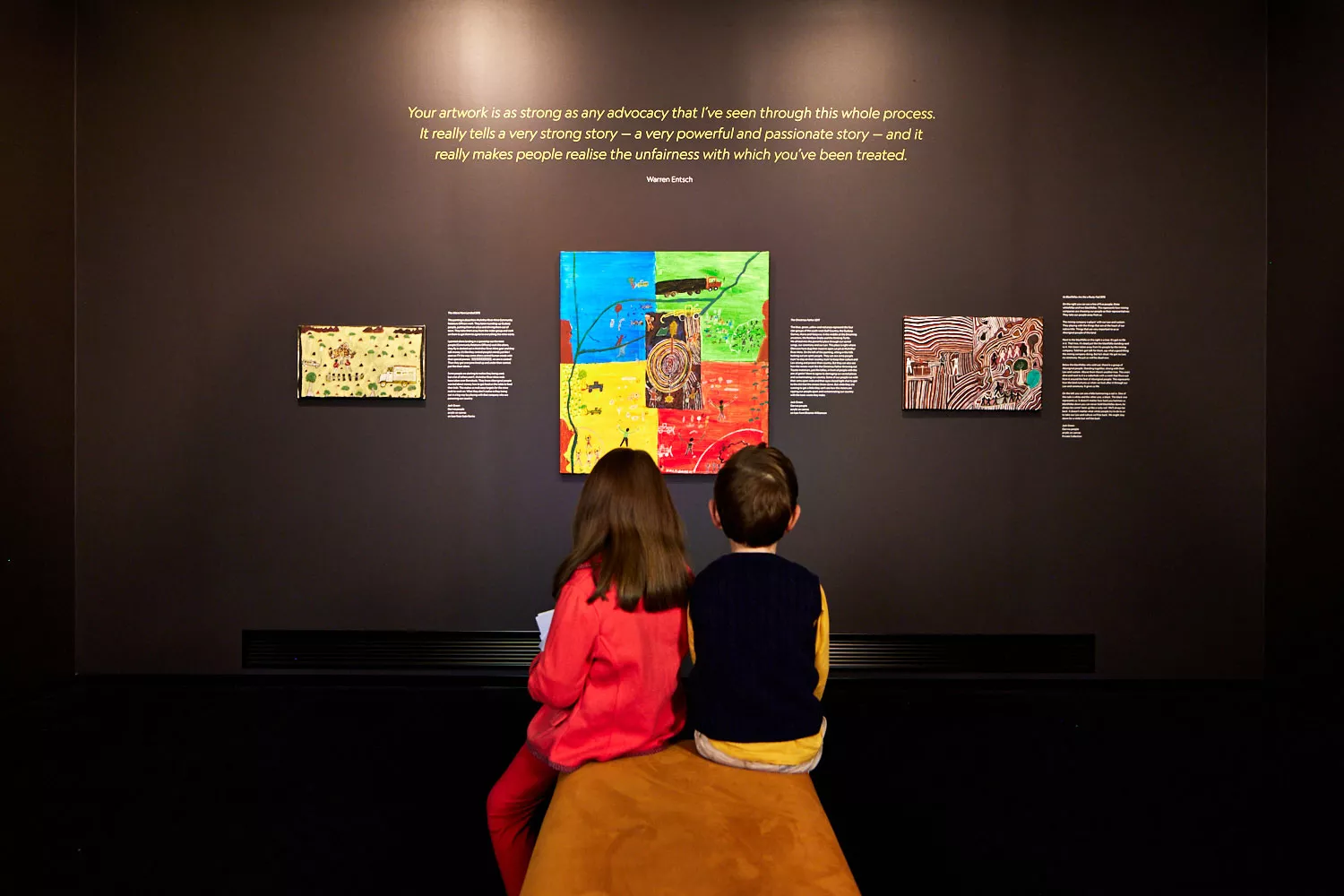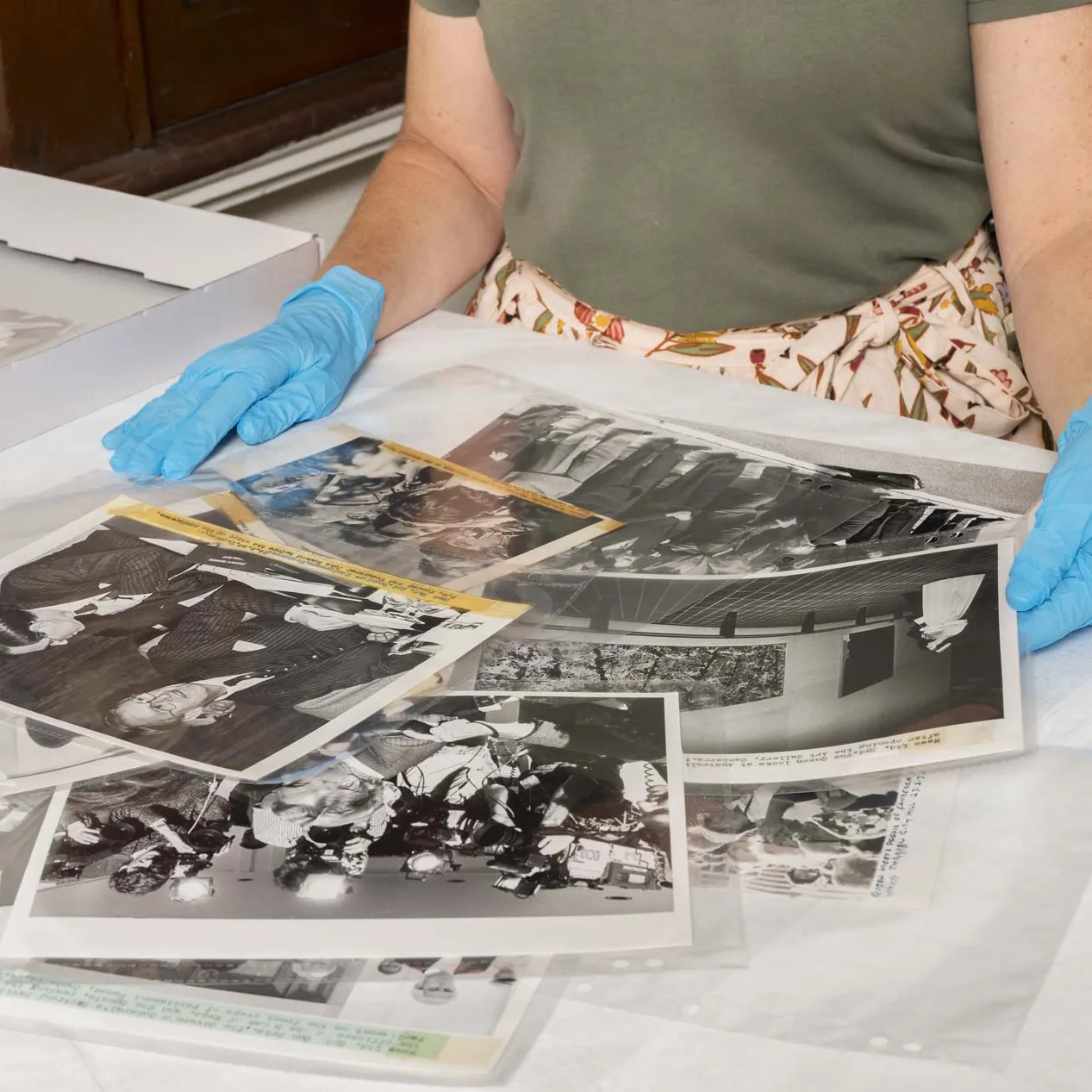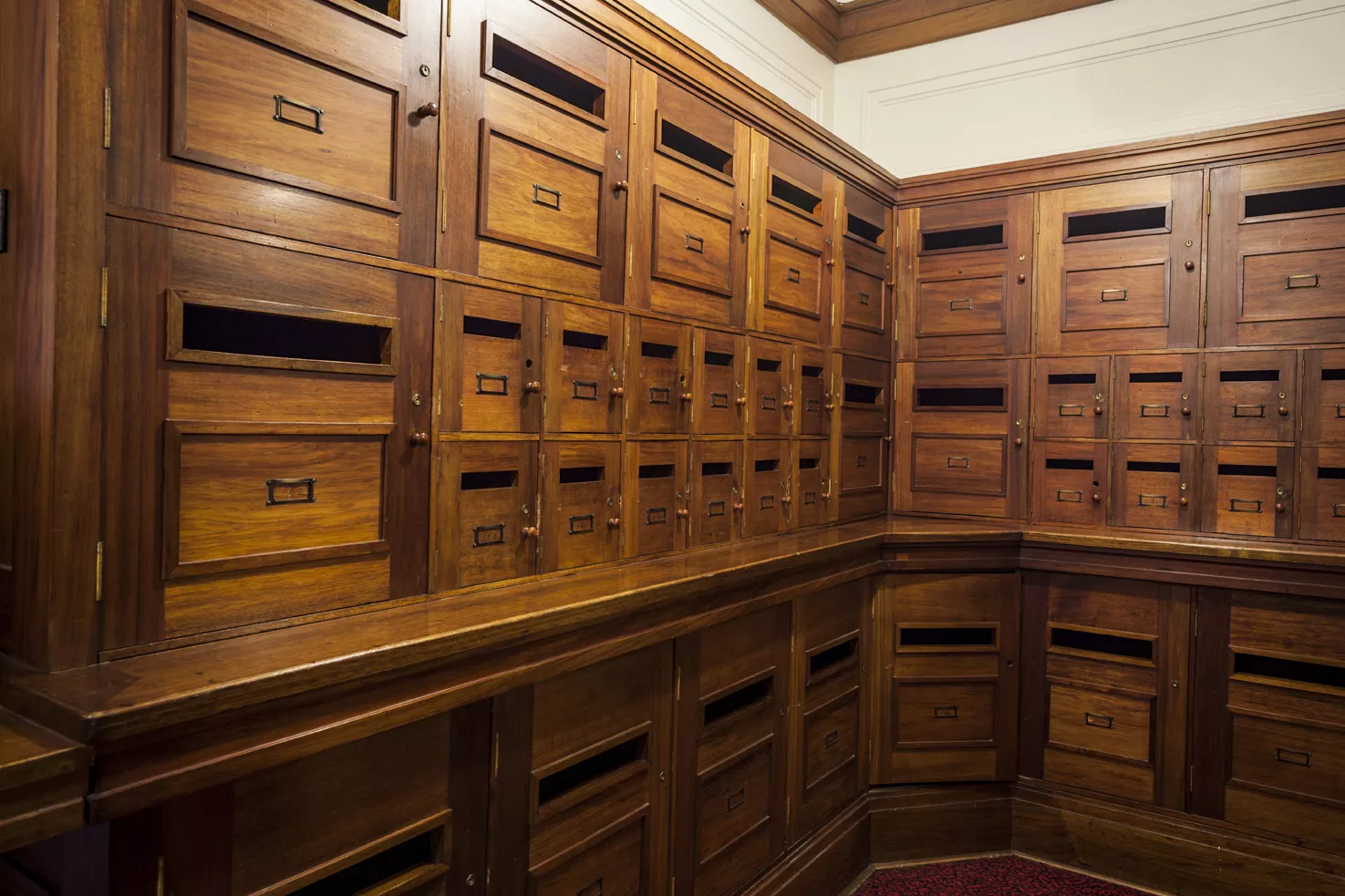Our prime minister patrons
MoAD is proudly supported by five former Australian prime ministers as our patrons:
- The Honourable John Howard OM AC
- The Honourable Kevin Rudd AC
- The Honourable Julia Gillard AC
- The Honourable Tony Abbott AC
- The Honourable Malcolm Turnbull AC
As patrons these distinguished former leaders amplify the important work MoAD does in encouraging all Australians to engage with our democracy. As former leaders of our nation they have each had the unique experience of being able to contribute to, shape and safeguard Australian democracy.
MoAD is immensely grateful for the contribution each of our patrons makes to the valuable work we do as a cultural institution.
John Howard: 1996–2007
John Howard became prime minister following the Liberal–National Party Coalition’s victory in the 1996 federal election. Mr Howard was born in Sydney in 1939 and enjoyed a career as a solicitor before entering parliament.
As prime minister, Mr Howard implemented a suite of reforms, including the introduction of the Goods and Services Tax Act 1999, the National Firearms Program Implementation Act 1996, which funded the gun buy-back scheme, and a range of legislation in response to the changed international security situation following the September 11 attacks in the USA.
Mr Howard is the second-longest serving prime minister in Australian history. Mr Howard was chairman of the International Democrat Union between 2002 and 2014.
He continues to advocate for further research into deafness.
'Old Parliament House is an indelible part of Australia’s democratic story. Having served as an MP in that building for some 14 years, it has a special place in my affections. I am delighted that it is to be re-opened.' - John Howard OM AC
Kevin Rudd: 2007–10, & 2013
Kevin Rudd became prime minister after the Australian Labor Party’s victory in the 2007 federal election. Mr Rudd was born in Nambour, Queensland in 1957. Before embarking on his political career, he worked as a diplomat for the Department of Foreign Affairs, where he was posted to Stockholm and Beijing.
In one of his first major actions as prime minister, Mr Rudd led the National Apology to the Stolen Generations. Mr Rudd also led Australia through the Global Financial Crisis, launching a major economic stimulus package.
Mr Rudd lost the party leadership and the prime ministership to Julia Gillard in 2010 but became prime minister again after winning a leadership ballot in 2013.
Mr Rudd is chair of the Independent Commission on Multilateralism, chair of Sanitation and Water for All, chairman of the Board at the International Peace Institute, and CEO and President of the Asia Society.
'It is essential for any vibrant democracy to have institutions that not only remind us of our history, but also interrogate it so that each successive generation can learn the lessons that will help them achieve a more just and more prosperous future for all. The Museum of Democracy at Old Parliament House is one such institution, and I am proud to be one of its patrons.' – Kevin Rudd AC
Julia Gillard: 2010–13
Julia Gillard became prime minister in 2010 after defeating Kevin Rudd in an Australian Labor Party leadership ballot. Ms Gillard is the first and only woman to hold prime ministership in Australia.
Ms Gillard was born in Wales in 1961 and worked as a solicitor for law firm Slater and Gordon before entering politics. Ms Gillard’s social policy characterised her term of leadership, creating the National Disability Insurance Scheme, Gonski Review, and a Royal Commission into Institutional Responses to Child Sexual Abuse.
Ms Gillard is the founder and inaugural Chair of The Global Institute for Women’s Leadership at King’s College in London and at the Australian National University in Canberra. Ms Gillard was the chair of the Global Partnership of Education from 2014 to 2021, and Chair of Beyond Blue from 2017 to 2023.
'Our Australian way of life, our culture and our freedoms are underpinned by our democratic system. While many might think of democracy as a timeless and rigid concept, the Museum showcases how our laws about who we think should vote and how we vote reflect the kind of community we were, that we are now, and give us clues to who we will be in the future.' – Julia Gillard AC
Tony Abbott: 2013–15
Tony Abbott became prime minister in 2013, when the Liberal-National Party coalition won office. Prior to entering parliament, he was a journalist with The Australian, a senior adviser to opposition leader John Hewson, and director of Australians for Constitutional Monarchy.
Mr Abbot was keenly focused on national security and free trade throughout his tenure as prime minister. During his two years in office, he negotiated the terms of the China–Australia Free Trade Agreement and created the Australian Border Force. Mr Abbott also reinstated the knights and dames honours system in Australia. Mr Abbott is currently adviser to the UK Board of Trade.
'We can’t take our democracy for granted, especially as it’s now under challenge from aggressive authoritarians overseas, convinced of the West’s decadence. If Australia is as free, fair and prosperous as any nation on earth – as I believe it is – our democracy is surely worth celebrating!'– Tony Abbott AC
Malcolm Turnbull: 2015–2018
Malcolm Turnbull became prime minister in 2015 after defeating Tony Abbott in a Liberal Party leadership ballot. Born in Sydney in 1954, Turnbull worked as a lawyer, investment banker and journalist before entering politics.
In 2017, Mr Turnbull facilitated a national vote to measure support for the legalisation of same-sex marriage in Australia. This vote eventually led to the Marriage Amendment (Definition and Religious Freedoms) Act 2017 which allowed people in same-sex relationships to marry.
In 2018, Mr Turnbull signed the Comprehensive and Progressive Agreement for Trans-Pacific Partnership, making Australian part of one of the world's largest free-trade areas by GDP. Mr Turnbull has since returned to the private sector and resumed his business career.
'Australia is the most successful multicultural society in the world. But we cannot take its endurance or its success for granted. Democracies like ours are under great stress in this 21st century. A clear-eyed understanding of our democratic institutions, their history, culture and operation, is essential to Australian citizenship. It provides the foundation for securing and advancing our democratic institutions so that they, learning from past mistakes and success alike, can better represent and serve our extraordinary people in all of their diversity.' – Malcolm Turnbull AC

